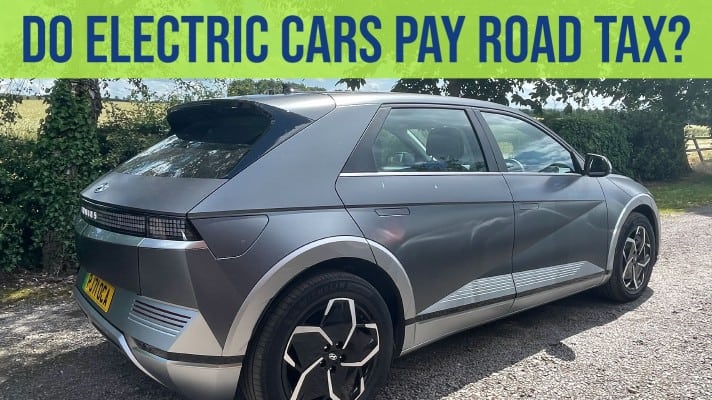Do Electric Cars Pay Road Tax
Electric vehicles are becoming the future; hybrid cars and electric cars offer drivers benefits that petrol and diesel cars do not. From cheaper running costs to a more comfortable drive, an electric vehicle can be a cost-effective mode of transport that helps the current fight to stop urgent global warming issues.
In this article, we will take a look at some of the more frequent questions people have about electric cars. Hopefully, we can inform you better about some of the benefits of owning an EV. We will explore questions such as do electric vehicles pay road tax? Are electric cars cheaper to run? And much more.

Do Electric Cars Pay Road Tax?
There is no road tax on electric cars! This is because they are exempt from vehicle excise duty (VED); electric cars have zero emissions, so they are considered to be more environmentally friendly than conventional petrol or diesel-powered vehicles.
With no tax on electric cars and cheaper running costs, many people are now choosing electric cars over fuel options.
With no road tax payments, pure electric cars are a cheaper alternative for running compared to petrol vehicles. Plug-in hybrid vehicles will still be charged for road tax as they have both electric engines and fuel engines; however, they are more economical than older vehicles, and you will still pay a lot less on road tax payments.
You can often get electric vehicles as company cars with salary sacrifice schemes. This is where you take home a lower salary to save money on tax payments.
Are Electric Cars the Future?
Electric cars are becoming increasingly popular as people become more aware of the environmental benefits. However, it is still unclear whether electric cars will replace traditional petrol and diesel cars in the future.
Electric cars are a type of vehicle that runs on electricity instead of gasoline. These types of cars do not produce emissions and are considered more environmentally friendly than gasoline-powered vehicles. Electric cars have many benefits, including being cheaper to operate and maintain and emitting no pollutants; hence, making them a greater alternative to petrol cars.
Fully electric vehicles are not the dominant form of vehicle yet, but with electric vehicles costing less each year and finance options making them more affordable, they’re already becoming the mainstream! With tax benefits and cheaper running costs, soon, they will be the best option available for all drivers.

Are Electric Vehicles Cheaper to Run?
The cost of running an electric car will depend on a number of factors, such as the price of electricity, the efficiency of the vehicle, and the distance you travel. However, electric cars are generally cheaper to run than petrol or diesel cars since you don’t have to pay for fuel.
How Do Electric Cars Work?
Electric cars work by using electricity to power an electric motor, which turns the wheels. The electricity is stored in a battery, and it can be recharged by plugging the car into a mains socket.
What Are the Benefits of Electric Cars?
Electric cars have a number of benefits over traditional petrol or diesel-powered vehicles. They are cheaper to run, they emit no pollutants, and they are much quieter. Electric cars also have the potential to be more efficient than conventional vehicles since they don’t lose energy through engine heat and exhaust fumes.
What is an Electric Car Scheme?
You may notice that your company offers an electric car scheme or a salary sacrifice scheme, and you might want to avoid vehicle tax by owning an electric vehicle. Well, these schemes help you to have an electric vehicle for an affordable price.
A salary sacrifice car scheme is a scheme that allows employees to lease a car from their employer. The employee agrees to give up a portion of their salary in return for the use of a car. The scheme is designed to help people afford a new car by reducing their monthly payments. This means the money that goes towards your vehicle is untaxed as it comes out of your payment before your tax payments. This also lowers your gross salary, meaning you could make further tax savings.

How is road tax Calculated, or Vehicle Excise Duty?
Vehicle excise duty is a tax that is based on the emissions of a vehicle and is paid annually. The amount of VED that you pay is determined by the carbon dioxide emissions of your vehicle. Electric cars are exempt from VED as they produce zero emissions.
What Are the Disadvantages of Electric Cars?
The main disadvantage of electric cars is that they have a limited range, and they can take a long time to recharge. Electric cars are also more expensive to buy than traditional petrol or diesel cars.
However, new models have long battery life and even fast charging options. Fully electric cars are getting better every year. With a finance option such as salary sacrifice, you can have battery electric vehicles for affordable prices. Zero-emission vehicles also don’t get taxed, so the benefits far outweigh the disadvantages.
How much does it cost to charge an electric car?
The cost of charging an electric car will depend on the price of electricity and the efficiency of the vehicle. However, electric cars are generally cheaper to run than petrol or diesel cars since you don’t have to pay for fuel.
Tags : electric car, electric car tax, electric vehicle, road tax, Tax

